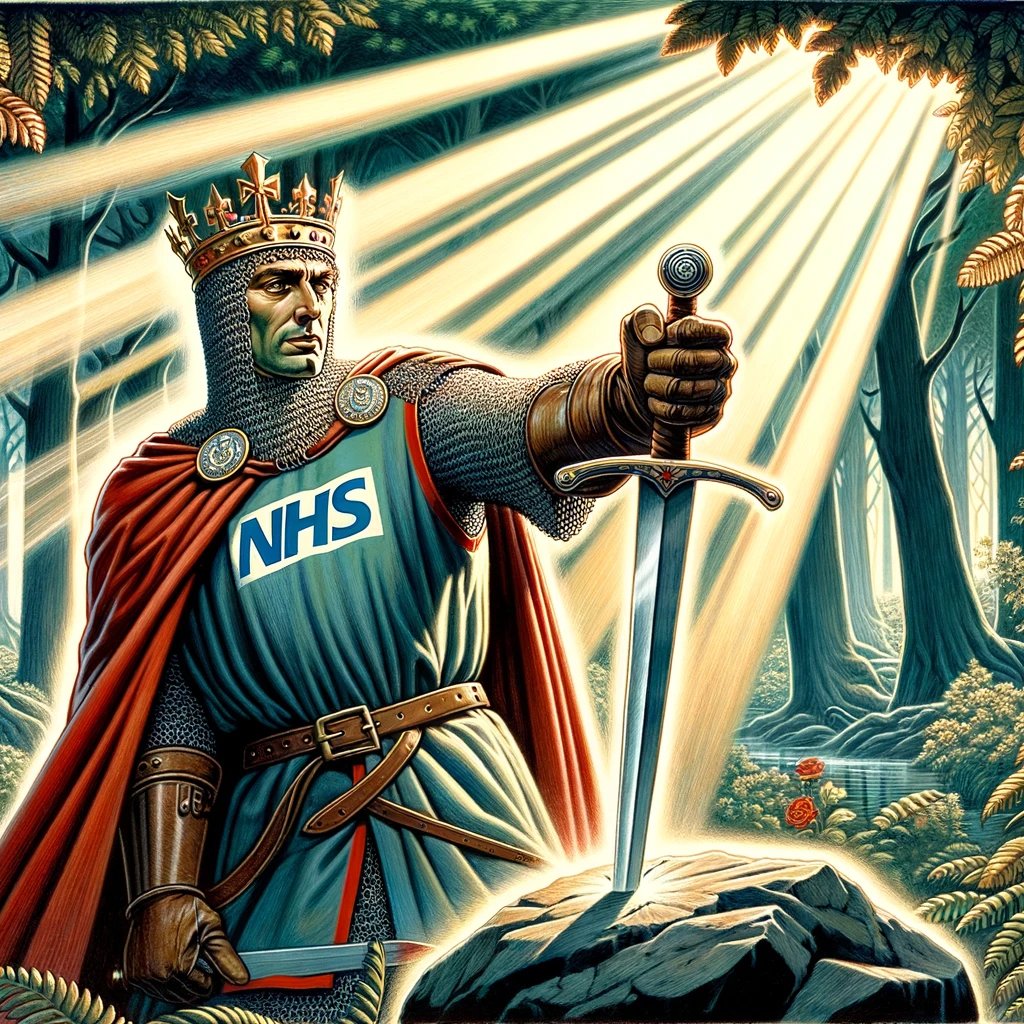Attend any gathering of British Right-wingers, either physical or virtual, and it is a pretty safe bet that before very long someone will make some kind of witheringly sarcastic reference to “R NHS”. Conservatives have always been sceptical about the mawkish and unjustified reverence with which our health system is discussed, and this exasperation is reaching fever pitch as the adulation becomes ever more histrionic. This week Jeremy Hunt laid his sacrifice on the altar set up by Nye Bevan in 1948, claiming in his Budget speech that the “NHS is, rightly, the biggest reason most of us are proud to be British”.
Right-wing Twitter had a field day with this, mocking the Chancellor by using AI to create pictures of great scenes from British history with NHS references shoehorned in: the signing of Magna Carta, the defeat of the Armada and the Battle of Trafalgar. Some of these were very funny, and it is always satisfying to see pushback against the current authorised version of British history, in which all was darkness and misery until 1945, when Bevan and Clement Attlee invented hospitals, compassion and tolerance.
The danger in this kind of response is that conservative-minded people end up creating their own simplistic historical myths, which voters and political opponents find unpersuasive. It is true that many elements of the welfare state were in place long before the postwar Labour government, and that many people with limited means were able to access high quality medical treatment through various forms of insurance, charity and informal local arrangements.
But the Labour reformers who created the NHS were responding to real problems and real miseries. The surprise landslide of July 1945, which hustled out of office a government which had just won the hardest war Britain has ever fought, is only really explicable if you understand the huge desire for change and reform among ordinary Britons.
Duelling narratives of national history are fun for Twitter, and they make for entertaining debates. But all the same, a full understanding of the truth about our past requires a kind of synthesis of many different perspectives. Currently prominent debates about imperialism prove this in spades. Those who argue that the British Empire was simply a means for plunder, enrichment and racial oppression are wrong, but that does not mean that patriots must return to the simplistic boosterism of the Ladybird Book of British Achievement.
Mocking Jeremy Hunt for finding so little of which to be proud in his own country’s achievements that he lauds a mediocre health system is one thing; conservatives who want to win must also offer a nuanced and attractive alternative if they are to recapture any significant part of elite opinion.











Join the discussion
Join like minded readers that support our journalism by becoming a paid subscriber
To join the discussion in the comments, become a paid subscriber.
Join like minded readers that support our journalism, read unlimited articles and enjoy other subscriber-only benefits.
Subscribe